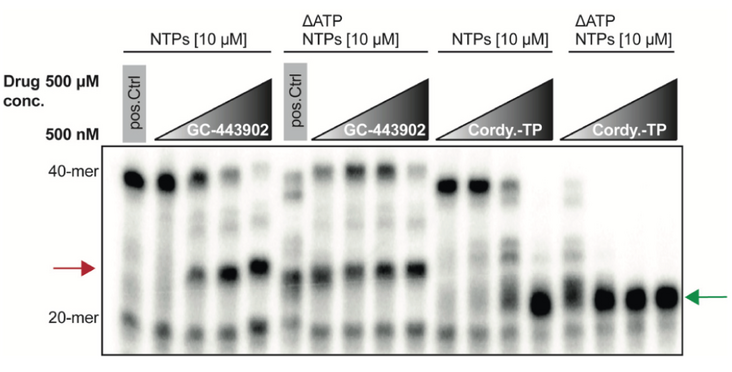Hasan Vatandaslar was during his PhD studies in the Stoffel lab doing a research stay in the Tusch lab supported by the NCCR Lab Exchange Program, when the Covid-19 pandemic hit New York. He decided to switch his research focus to SARS-CoV-2 and continued to work in the lab. He described this experience in an article for the NCCR Newsletter. One outcome of this research was the paper "A Systematic Study on the Optimal Nucleotide Analogue Concentration and Rate Limiting Nucleotide of the SARS-CoV-2 RNA-Dependent RNA Polymerase" which has been published in the International Journal of Molecular Sciences.
Abstract
The current COVID-19 pandemic has highlighted the necessity of more efficient antiviral compounds. The antiviral efficacy of adenosine-based analogs, the main repurposed drugs for SARS- CoV-2 RNA-dependent RNA polymerase (RdRp) inhibition, is mainly assessed through in vitro or cell-free polymerization assays, under arbitrary conditions that do not reflect the physiological environment. We show that SARS-CoV-2 RdRp inhibition efficiency of remdesivir and cordycepin, two common adenosine analogs, is influenced by endogenous adenosine level, and that the current clinically approved concentrations for COVID-19 treatment are suboptimal for effective RdRp inhibi- tion. Furthermore, we identified GTP as the rate-limiting nucleotide of SARS-CoV-2 replication. Our results demonstrate that nucleotide sensitivity of the RdRp complex and competition of nucleoside analog drugs against endogenous concentrations of nucleotides are crucial elements to be considered when designing new SARS-CoV-2 antiviral compounds.
Read the Publication in the Journal of Molecular Sciences (Open Access)
Abstract, figure and title from Vatandaslar (2022) Int J Mol Sci published under a CC BY 4.0 license.
